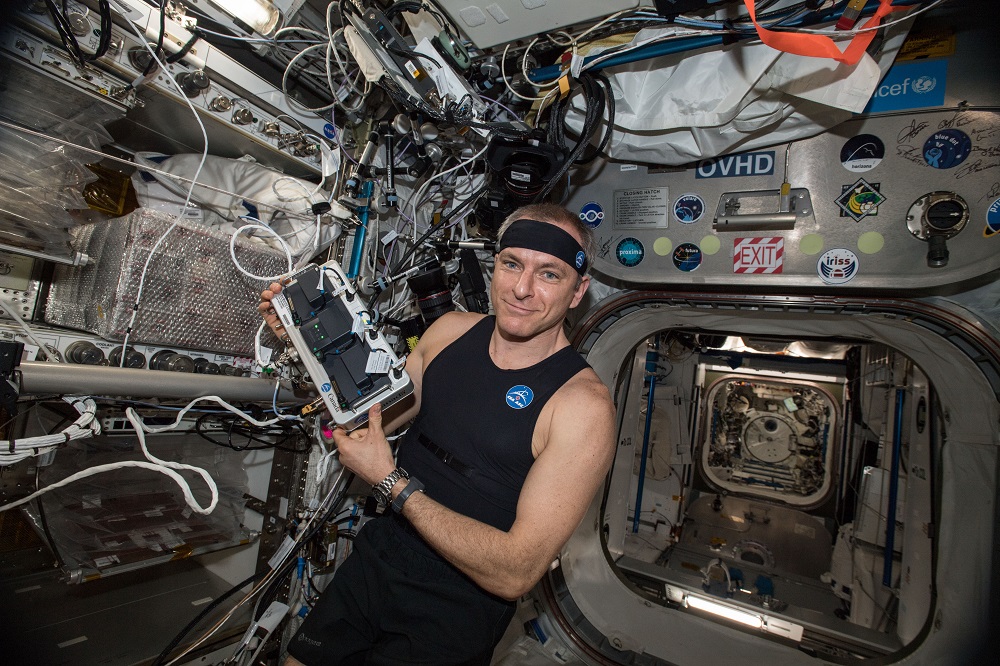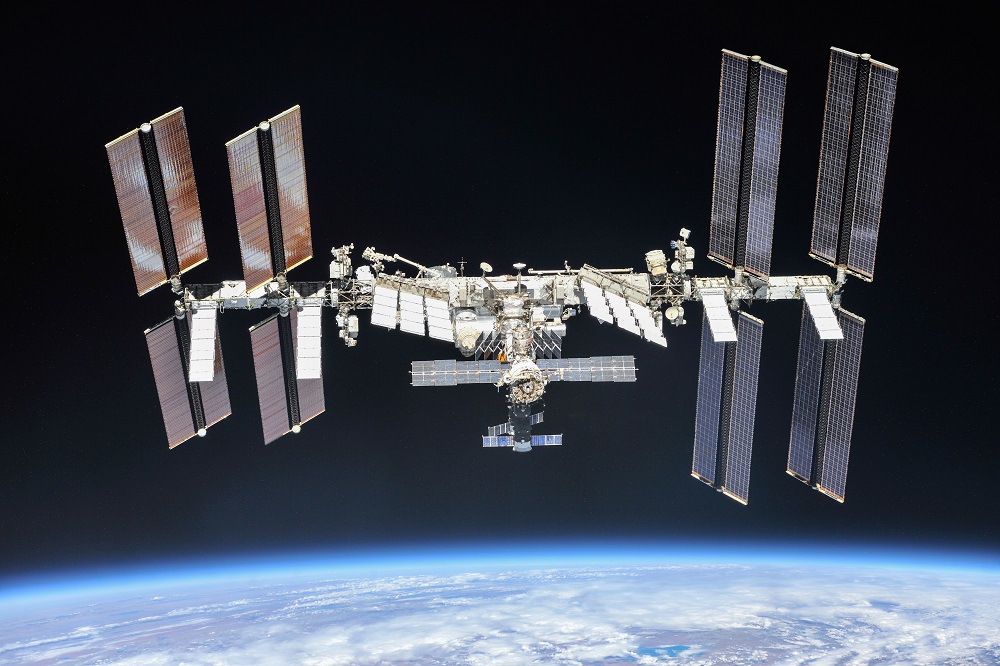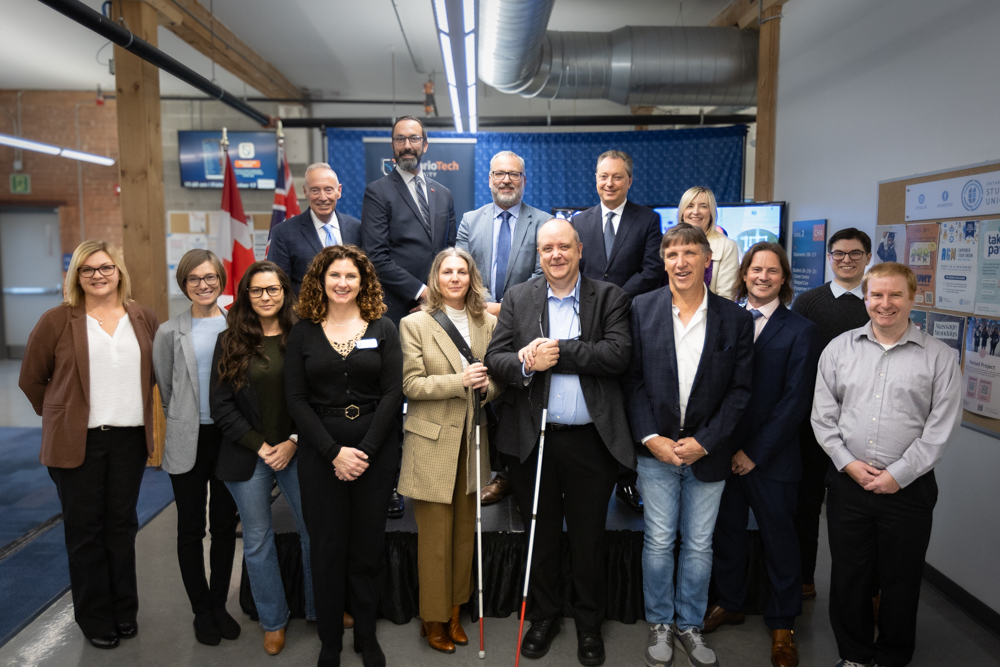Reaching for the stars: New Ontario Tech research on the health of astronauts in space
Dr. Carolyn McGregor’s real-time Artemis computing platform exploring new health-care frontiers
July 22, 2021

For more than 20 consecutive years, there’s been an uninterrupted human presence on the International Space Station (ISS). This year, the orbiting living lab will get an important new research boost from Canada’s space science community—research closely tied to Ontario Tech University computer science and health analytics expert Dr. Carolyn McGregor AM.
The Canadian Space Agency (CSA) is funding new Canadian studies over the next five years to help mitigate health risks for future space travellers and contribute to the well-being of people on Earth. Astronauts will wear Bio-Monitor, a system that includes a biometric compression shirt and a headband, accompanied by a dedicated tablet application. The device will continuously monitor astronauts’ health and record their vital signs, before, during and after their mission to the ISS.
Mission: ‘Space Health’
The Bio-Monitor is a store-and-forward device, much like an ECG holter (heart activity) monitor. Dr. McGregor’s component of the research will lead to new knowledge on health risks associated with the spaceflight environment through simulated real-time data acquisition and transmission, focusing on:
- Heart rate and variability
- Respiration rate and variability
- Blood-oxygen saturation and variability
The research will use 48-hour data collection segments to enable the analysis of two consecutive 24-hour cycles each time to evaluate resilience and assess the impact of exercise, activities, caffeine intake, sleep and mental health state on the cardiovascular system. The astronauts will answer a questionnaire to assess their level of stress, which will then be factored into the computation for the impact of adaptation and cardiovascular deconditioning.
Dr. McGregor’s team will also test extensions to the Artemis Big Data computing analytics platform to demonstrate its potential for autonomous health monitoring during long-range and lunar missions.
“Two key challenges in space are the increased risk of radiation exposure and the impact of the microgravity environment of space on the heart and blood flow,” says Dr. McGregor, Professor, Faculty of Business and Information Technology at Ontario Tech. “We will also test algorithms to measure the impact of adaptation and cardiovascular deconditioning in near real-time.”
Dr. McGregor’s Artemis Project has a stellar record on Earth
For nearly 15 years, Dr. McGregor’s health analytics research has pushed new boundaries in a wide range of health-care environments.
The Artemis Project began as a means to monitor the vital signs of premature infants going through extreme and rapid adaption to living outside the womb, with a particular focus on hospital intensive care units. In addition to helping ensure the bodies and minds of astronauts have the resilience to perform in the extremes of space within and outside the spacecraft, Artemis has also found applications to gauge the resilience of firefighters, tactical officers and military personnel working to save lives in extreme climate locations.
Ontario Tech’s global research connection
The Space Health project is part of the Joint Research Centre in AI for Health and Wellness (AI4HW), a unique collaborative research centre shared by Ontario Tech and the University of Technology Sydney in Australia. AI4HW is recognized for its expertise in the assessment and development of resilience and adaption in extreme environments, such as space, climates with extreme heat or extreme cold, extreme work environments such as the military, tactical officers and firefighters and critical care medicine. No similar innovative advanced prototyping and simulation environment to support next-generation health and wellness solutions exists in the world.
1 > 1



